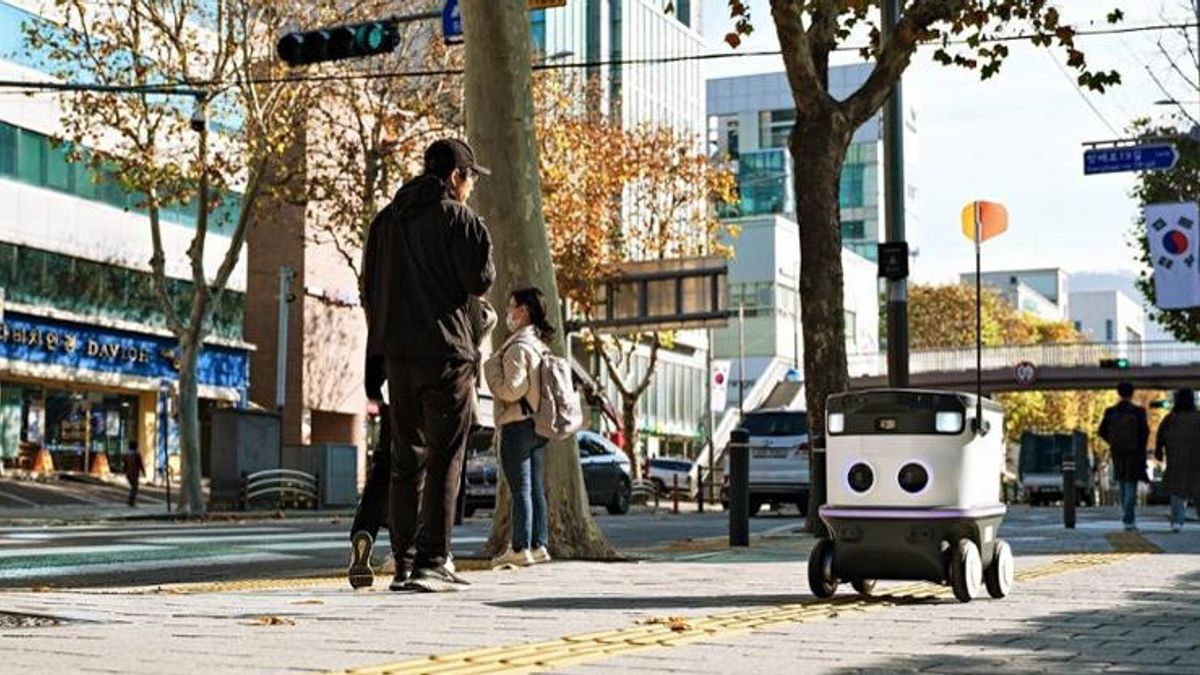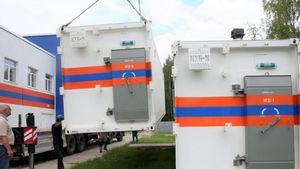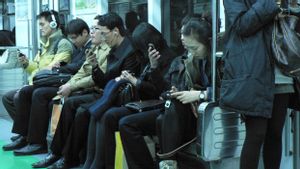JAKARTA - Starting in August, consumers who order goods at Seongnam, Gyeonggi Province, South Korea may encounter robots waiting at their doors while carrying the package they bought.
Korean autonomous robotics startup Neubility said in May it was working with the city government to operate 10 Neubie delivery robots near Pangyo and Seohyeon-dong Stations, following looser regulations on the use of outdoor delivery robots.
The project aims to help small store owners reduce delivery costs. The company received 300 million won from the central government and an additional 130 million won from other investors for the project.
"After the central government's deregulation measures, we can start our robotic delivery service seriously at Seongnam," explained Neubility CEO Lee Sang-min, quoted by The National News on July 10.
Outdoor robotic delivery services have been legal in Korea since last November, as the revised Smart Robot Development and Provision Act enables outdoor autonomous robotic operations for delivery.
Meanwhile, the revised Road Traffic Law categorizes delivery robots as pedestrians that can move on sidewalks.
The relaxed regulations have prompted many robotics companies in the Ginseng Country to take their delivery robots out of the building, with the aim of assessing their ability in outdoor services.
In collaboration with KT and Gangnam District Office, Neubility tested its Neubie robot last November, sending drinks to customers ordering near Seolleung Station via the company's mobile app.
Separately, Woowa Brothers, operator of the Baedal Minjok delivery app, also tested its robot, Dilly, for outdoor services near COEX.
"Equipped with advanced cameras and sensors, Dally can quickly and precisely detect obstacles while operating in densely populated urban areas," said a Woowa Brothers official.
"This robot is equipped with a high-performance self-driving algorithm, which allows it to avoid pedestrians on crowded sidewalks and soon find new routes in unexpected situations."
Robotists, who previously operated the Gaemi delivery robot in a restricted outdoor environment such as apartment complexes, camphouses, resorts and golf courses, have now switched to delivering drinks on the road this year in collaboration with Vanada Coffee, a local coffee shop franchise.
According to market intelligence firm Quad Intel, the global outdoor robot market is projected to jump to USD 105 million by 2027 from USD 4 million by 2020. That estimate reflects an average annual growth rate of 17.3 percent.
"The use of outdoor delivery robots is expected to significantly reduce overall labor costs," said Quad Intel in a report.
"These robots can replace delivery officers and can carry loads of more than 100 kilograms at once," he continued.
SEE ALSO:
However, the company warned robots could result in traffic accidents and injure pedestrians.
"The outdoor delivery robot has also drawn criticism, as robots will compete with pedestrians and wheelchairs to get space," said Quad Intel.
Meanwhile, amid growing concerns about potential accidents involving delivery robots before being widely adopted, the National Police Agency has started a study on how to deal with such incidents and determined responsibility for the damage.
The English, Chinese, Japanese, Arabic, and French versions are automatically generated by the AI. So there may still be inaccuracies in translating, please always see Indonesian as our main language. (system supported by DigitalSiber.id)


















